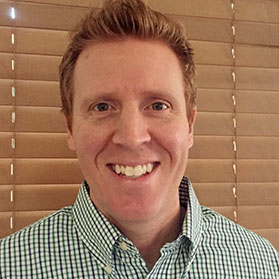By: Greg Douglas, LMHC
I’ve heard many partners injured by an affair say the same thing: “he just expects me to get over it and move on, but I’m not ready for that!”
The “Just Get Over It” Approach
Can we really expect our injured partner to just “move on” and “get over it?” I think not, but many people take this stance hoping to move beyond the trauma and return to normalcy. Typically, the partner who strayed (the involved partner) is the one pushing this agenda. They feel guilt, shame, and often see their partner hurting. Their thinking is the more they talk about the affair, the more their partner will hold on to painful emotions and the worse things will get.
The truth is their partner is in no way, shape or form ready to move on and for good reason. “Just moving on” is akin to sweeping an issue under the rug and refusing to gain a deeper understanding of why the affair happened.
Affairs are Traumatic and Trauma Takes Time to Heal
The fallout of an affair being uncovered is extremely traumatic. Betrayed partners regularly feel symptoms of PTSD just like war veterans and those who have endured or witnessed extremely traumatic events. Would you tell your friend in the Army to “just forget” about what happened in Afghanistan and move on? NO WAY! So, why would you do this to your partner.
We have to understand just how traumatic affairs are and give them the same time and attention that we would afford other types of trauma.
Understanding Takes Time
Understanding what has happened and why it happened is central to the process of recovering from infidelity. If you don’t know why something happened how can you feel confident it won’t happen again? This is the argument from many injured partners, and rightfully so. If you totally screwed up a major work project would your manager be content for you to say, “well I’m not sure what went wrong, but let’s just move on and not worry about it.” NO CHANCE!
A huge part of the recovery process is each partner gaining an understanding of what was happening for them as individuals, and what was happening in the relationship. You are missing a real chance to learn more about yourself and your relationship when you simply try to hurry up and move on.
Change Your Approach and Prepare to Heal
If you would like to take the time to truly heal from the affair, and your partner just wants to move on, you will need a new approach. The first thing you will want to do is avoid over-the-top reactions about the affair. This is easier said than done, but critical nonetheless. The more you rant and rave about how your partner destroyed your life, the more they will avoid the issue. Stay as calm as you can and let your partner know that the more you understand about what happened and why, the more you heal and the better you feel.
The second thing you want to do entails taking a different perspective on how much your partner understands about their actions. In my experience most men (and some women) have little understanding about why they had affairs. Their partner asks them over and over about why they cheated, but they still don’t have any answers. Acknowledge that your partner probably doesn’t know why he strayed and take a more collaborative approach to finding out. See your partner as a teammate that needs your support to gain understanding. The more they learn about themselves and their reasons for having the affair, the sooner your healing can begin.
The third thing I would encourage you to do is seek professional help from a trained couples counselor who specializes in affair recovery. Most individual therapists and even some couples therapists have little training or knowledge in how to help people heal from affairs. Your therapist will serve as your guide throughout the healing process and will give you new insights, perspectives, and strategies to further your healing.
Greg Douglas, LMHC specialized in Affair Recovery and has helped hundreds of couples heal from affairs. If you would like more information about the Affair Recovery services at Douglas Counseling, please give us a call at (561) 207-1903 or visit us online at www.DouglasCounseling.com.

